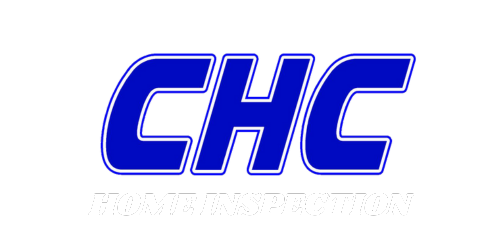Home Inspection: What’s Included and What’s Not
When buying a home, you want to do everything possible to ensure you’re making a wise investment. Several myths and misconceptions surround home inspections, and many people are unsure of what’s included. CHC Home Inspection is here to share what’s included in a home inspection and what’s not.
What’s Included in a Home Inspection
A home inspection ensures the property is safe and in good condition. While a standard inspection is not all-encompassing, the number of items it excludes is small compared to what it covers. Suppose any damage or other issues are found during an inspection. In that case, the seller is usually responsible for making necessary repairs or reducing the home's price by the estimated repair cost.
Primary Structure: An inspector checks visible structural elements for signs of sagging or other damage; this includes the foundation, floors, walls, and window alignment. Many older homes are subject to foundation damage from settling, temperature changes, and other movements, also known as slab heave.
Safety: Interior and exterior stairs and handrails are examined to ensure they are stable and even. A home’s electrical system, including visible wiring, circuit breakers, outlets, and light fixtures, will be inspected to ensure all components are up to code and functional.
Roof: The roof's condition will be inspected, including shingles, chimneys, vents, and gutters. A total roof replacement varies in cost depending on the size of the home and the materials used, but the national average is approximately $10,000.
Appliances: A standard inspection includes all a home’s major appliances, including a refrigerator, stove, dishwasher, washing machine, and dryer.
Basement: The basement will be checked to ensure the foundation, walls, and floors are free of cracks or other signs of damage. Moisture is a significant problem in many basements, so the inspector will also look for signs of water intrusion.
HVAC & Plumbing: HVAC and plumbing problems can cost thousands to repair, so it’s best to find out about them before buying a property.
What a Standard Inspection Doesn’t Include
While these issues are not required to complete a standard home inspection, we encourage you to follow the advice of your inspector if they voice concerns about any of the following:
Pests: Your home inspector will not perform a thorough inspection for pests like rodents or termites but will recommend an additional specialized inspection if they see evidence of infestation.
Presence of Toxic Elements: Amny inspectors will not check for asbestos or radon gas during an initial inspection. This also includes other toxic substances, like lead paint, mold, and indoor air quality—we offer additional inspections for these elements as services at CHC Home Inspection.
Appliance Vents: The proper functioning of venting systems of appliances like stoves and dryers are essential but are not usually a part of a regular home inspection.
Swimming Pools: If the property has a pool, you will need a special inspection to ensure it meets all local safety regulations. A pool inspection is often required for insurance purposes.
Contact Us
The team of licensed CHC Home Inspection inspectors can perform various home inspections, including termite and septic inspections. Call us at 1-800-975-0275 to schedule an inspection or request an insurance quote online. We’re located in Lexington, KY, and proudly serve Lexington, Louisville, Liberty, Somerset, Georgetown, Nicholasville, and Central KY.

